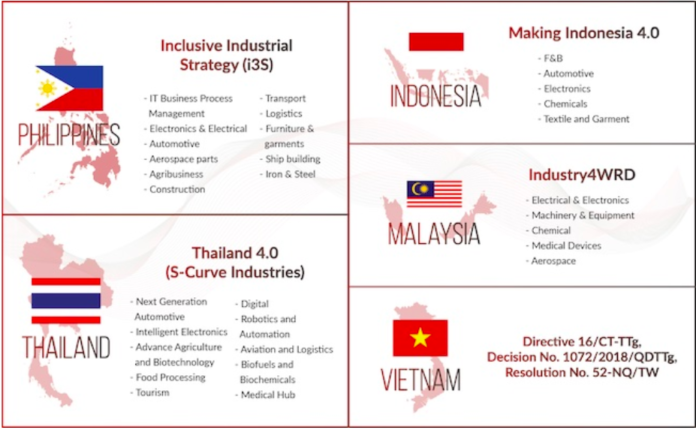Almost half (47%) of professionals in the manufacturing and supply chain industries across the five biggest economies in Southeast Asia believe that their own companies fell behind the industry average when it comes to using digital tools as part of business processes, according to a survey conducted by AIBP and Oracle.
Done from March to April, the survey covered 193 professionals —mainly from IT, innovation and business backgrounds — who are based in Singapore, Indonesia, Malaysia, Thailand, Philippines and Vietnam.
The manufacturing industry plays a significant role in local economies of Southeast Asian countries, contributing more than 20% of GDP in markets like Singapore, Indonesia, Malaysia and Thailand. Governments are focused on uplifting local manufacturing capabilities by implementing policies to encourage and support initiatives towards Industry 4.0.
The survey also found that 47% of respondents believed that the top priority of implementing digital solutions should be to drive operational efficiency in a bid to reduce costs. Meanwhile, 17% feel that it should be used to increase or create revenue opportunities.
The COVID-19 pandemic has seen supply chain disruptions across industries. While some companies struggled to come to terms with unusual fluctuations in supply and demand, other companies were better prepared.
Oracle noted that companies from the manufacturing and supply chain industries continue to innovate. In 2020, three out of 10 winners of the annual ASEAN Enterprise Innovation Awards were from the manufacturing and supply chain industries, including Kalbe Farma and Astra International.
Both companies embarked on digital transformation projects which involved integration of their ERP across business units to allow for a more connected supply chains. This enabled real time feedback from across the entire value chain.
“There is an urgent need to reorganize one’s supply chains in the wake of 2020 and the recent Suez Canal blockage, and manufacturers in the region are rightly realising that what they have in-house is not enough when creating robust and resilient logistics processes that keep the business moving efficiently,” said Michael Lim, GTM Leader of ERP and Digital Supply Chain at Oracle.
“With new capabilities upgraded onto Oracle Fusion Cloud Supply Chain Management each quarter, we are helping our customers streamline logistics to fulfil orders faster, cheaper and more sustainably to deliver the operational excellence they desire,” said Lim.
















